In the ever-changing world of consumer marketing now, both manufacturing companies and businesses must continuously adapt and stay ahead of the curve. But how can they do that effectively?
In this blog post, we’ll delve into six manufacturer consumer marketing and strategies for 2026, providing insights into the unique challenges within the manufacturing industry and offering solutions to ensure your company’s consumer marketing and social media strategy and efforts stand out, attract more customers, and boost sales.
Short Summary
-
Manufacturer marketing involves employing various tactics to drive sales and increase brand's recognition.
-
Developing a comprehensive strategy includes defining objectives, targeting audiences, and utilizing marketing tools such as SEO, social media marketing and email campaigns.
-
Lead generation techniques like content creation can help manufacturers attract potential customers while targeted tactics enable organizations to become more agile in meeting regulatory compliance.
Understanding Manufacturer Marketing
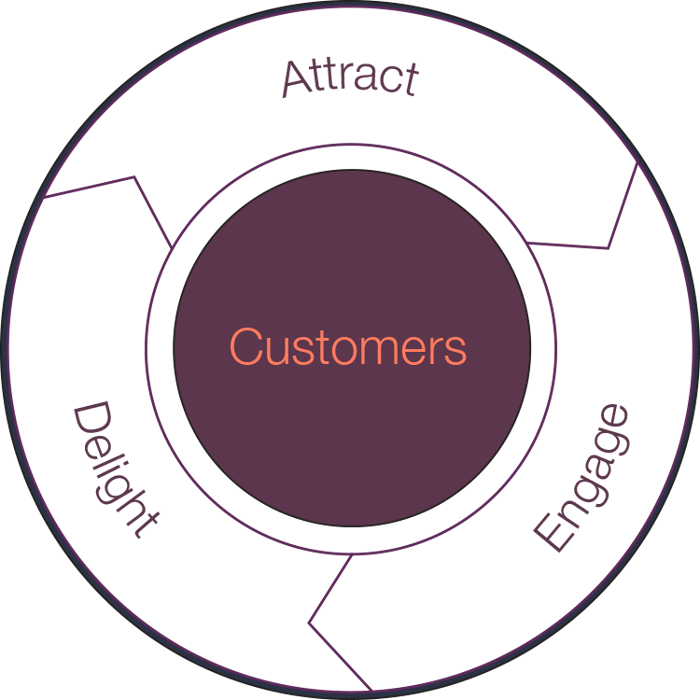
Manufacturing marketing is a crucial aspect of any manufacturing company’s growth and success. Devising and executing a manufacturing marketing strategy involves advertising and distributing manufacturing marketing relates to products to customers with the primary objectives of driving sales and increasing brand's recognition.
However, understanding how the manufacturing industry and how manufacturing companies' marketing relates itself to its own set of challenges, such as the distinctions between B2B and B2C, manufacturing companies' marketing channels and the requirement for tailored strategies, can be complex.
To navigate these challenges, manufacturers must employ various marketing techniques such as digital marketing, content-based marketing, trade shows and events, search engine optimization (SEO), pay-per-click advertising, social media-based marketing, email marketing, their sales teams and more.
By developing strong marketing strategies, manufacturers can effectively reach their targeted audience, generate more leads, and ultimately increase sales.
Types of Digital Marketing for Manufacturers
In today’s digital age, manufacturers have a wide array of digital marketing options at their disposal. Content marketing, search engine optimization (SEO), pay-per-click, social media marketing, and emails marketing are all viable digital marketing options for manufacturers.
Some forms of content that can be utilized in marketing include blog posts, eBooks, infographics, case studies, videos, and additional resources. When crafting a marketing strategy, it is essential to ensure that the content is tailored to your target customer and focused content provides value to prospective clients.
Content-based marketing offers several advantages for manufacturers, such as enhanced brand visibility and quality leads generation.
Challenges in Manufacturing Marketing
Manufacturing marketing often involves challenges such as targeting a specific audience, generating qualified leads themselves, and creating compelling content. For example, manufacturers may lack experience in creating content, which can hinder their ability to attract and engage their targeted audience.
Additionally, generating leads is a significant challenge in manufacturing marketing, and direct online sales to B2B buyers can be difficult.
To overcome these challenges, manufacturers must adopt targeted marketing techniques, their own digital efforts to utilize effective leads generation techniques, and to produce engaging content that appeals to their audience.
By doing so, manufacturers will be better equipped to create content to reach their required audience, generate high-quality leads, and ultimately convert those quality leads into loyal customers.
Developing a Comprehensive Marketing Strategy
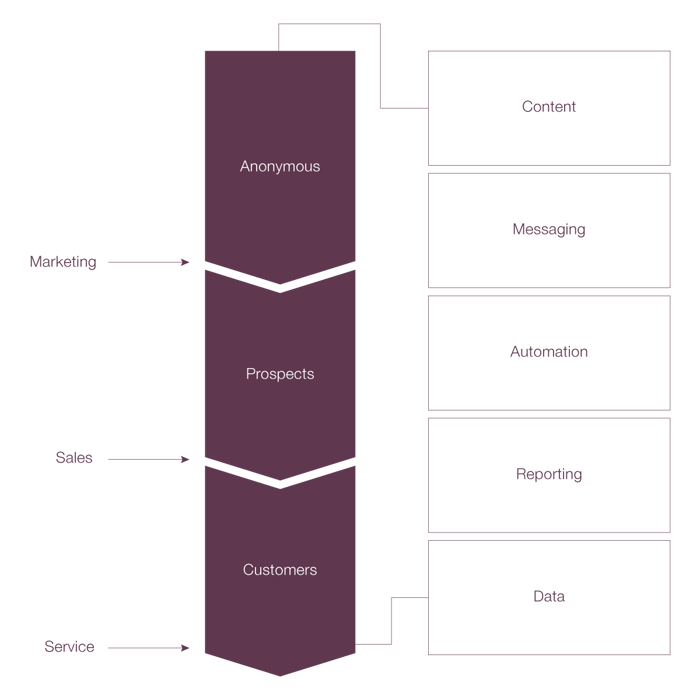
A comprehensive marketing strategy is crucial for manufacturers looking to increase brand awareness and recognition and drive sales. It entails defining explicit objectives, pinpointing targeted audiences, and choosing the most effective marketing methods.
For instance, investing in social media-based marketing, website content, PPC oriented advertising, and SEO can help build brand awareness.
It is more effective to focus marketing on a specific group of people than trying to appeal to everyone. Manufacturers use multiple other online marketing channels and social media channels to advertise their products.
These marketing channels may include online advertising, PR, and social media posts, and emails marketing. Having an internal team for digital marketing is essential to ensure that freelancers or agencies are meeting the objectives of the business.
Setting Marketing Goals
Establishing strong marketing strategy and goals is essential to help manufacturers prioritize their most important objectives and accurately assess progress.
Defining the target audience and establishing goals and objectives are interrelated, as understanding who you are trying to reach will inform your own marketing strategy and goals.
It is of utmost importance manufacturing-based marketers to establish business objectives before concentrating on marketing objectives, as marketing objectives should be aligned with business objectives, such as conversions and sales.
Key metrics to consider when establishing marketing strategy and new business objectives include page visits, click-through rates, and duration on the page.
Identifying Your Target Audience
Determining the target audience in manufacturing marketing is essential to guarantee that the content reaches the appropriate individuals.
A target audience in manufacturing marketing relates inbound marketing is a particular group of people who are likely to be interested in a company’s product or service, identified by factors such as demographics, interests, behaviors, and location.
Identifying a buyer persona and the buyer purchases buying journey allows manufacturers to focus their marketing activities, resulting in cost and time savings.
By understanding the buyer purchases buying journey and who their ideal customer is, manufacturers can tailor their marketing efforts to resonate with their targeted audience, more customer loyalty, ultimately leading to more effective marketing campaigns and increased sales for prospective customers.
Top Manufacturer Marketing Strategies
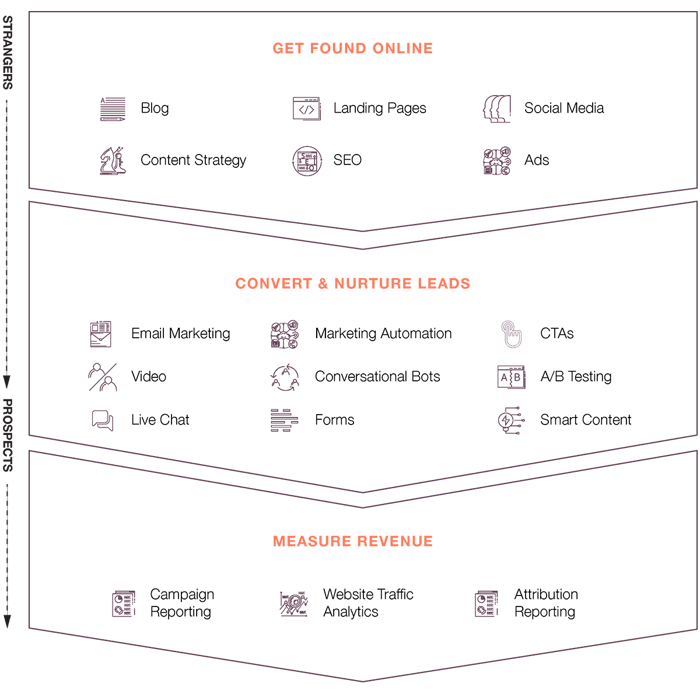
In this section, we’ll explore six top manufacturer marketing strategies that can help your business succeed in the competitive landscape. These strategies include shows and events, search engine optimization (SEO), pay-per-click oriented advertising, social media marketing, and email marketing.
Each of these strategies offers unique advantages and can be tailored to meet the specific needs and objectives of your manufacturing company.
By adopting and integrating these top marketing strategies into your sales and marketing funnel and overall sales teams marketing plan and your manufacturing marketing resources, you can effectively reach your target audience, generate leads, and ultimately increase sales and revenue for your manufacturing business.
Content Marketing
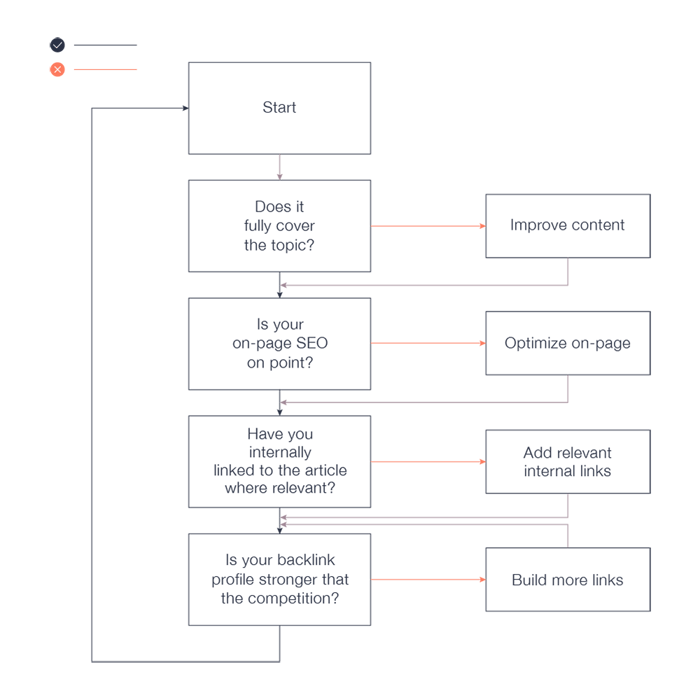
Content marketing enables manufacturers to demonstrate their expertise, sell products, and draw in potential customers by creating and distributing high-quality content.
Content can include blog posts, eBooks, infographics, case studies, videos, and additional resources that provide valuable insights and information for your targeted audience.
By consistently producing engaging and informative content through social media posts, manufacturers can establish themselves as industry experts, build trust with potential customers, and ultimately drive more sales.
In addition, Marketing of content through their social media channels and posts creative content can help manufacturers improve their SEO efforts and boost their visibility in SERP.
Trade Shows and Events
Trade shows and events offer valuable opportunities for manufacturers to showcase their products and services, network with other industry professionals, and generate leads.
Attending trade shows raises brand visibility and conveys that manufacturers value their counterparts in the sector. Additionally, it is a cost-effective way of connecting with potential customers.
By using industry focused content and participating in events and shows, manufacturers can stay up-to-date with the industry focused content, latest trends and innovations, as well as gain insights into their competitors’ strategies.
This knowledge can be invaluable in informing and refining your own marketing, ultimately leading to greater success, and growth for your manufacturing business.
Search Engine Optimization (SEO)
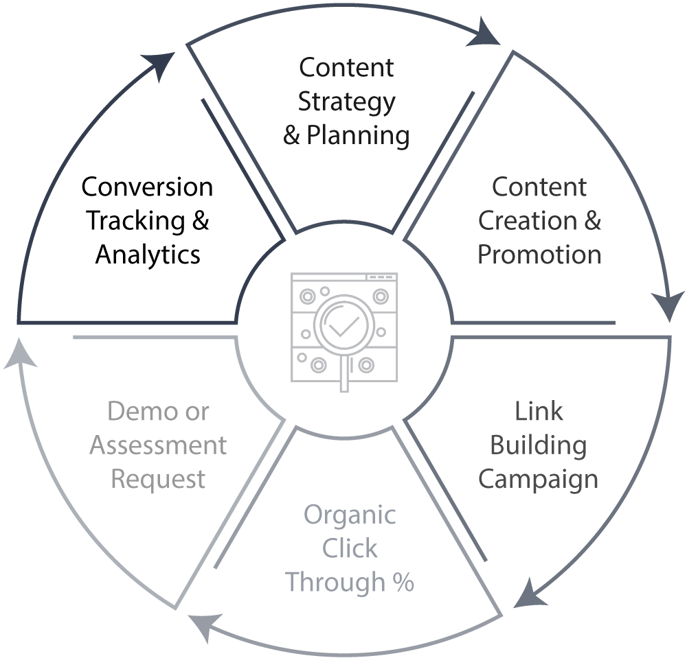
Search Engine Optimization (SEO) is a critical component of any manufacturer’s digital marketing and strategy for ultimately converting more sales-ready website visitors into lead form submissions.
SEO involves optimizing website traffic quality and quantity from search engines by making small modifications to parts of a website to their search engine results pages increase visibility in search engine results pages and drive more traffic from search engines to the website.
To enhance your SEO, you can optimize content for keywords, generate high-quality backlinks, do keyword optimization, use google analytics, optimize images and videos, and improve website speed and performance.
The advantages of SEO include enhanced website visibility, higher positions in search engine results, increased website traffic, and strengthened recognition of brand.
By incorporating SEO into your website visitors and your marketing strategy more business side, you can attract more of potential clients and customers and ultimately increase sales.
Pay-Per-Click (PPC) Advertising
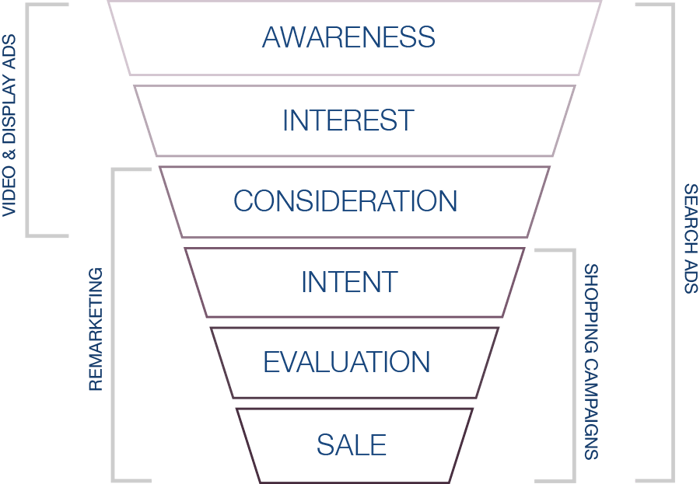
Pay per click advertising is an efficient method of generating leads online advertising, and increasing recognition of brand through the creation of ads that incur a cost only when someone clicks on them.
Comprehensive research to determine the appropriate keywords to target and to comprehend how buyer personas might see search engines online is essential for successful PPC ads.
It offers manufacturers a high degree of control and precision in terms of their marketing budget. The reporting capabilities of PPC also provide manufacturers with a clear understanding of the cost per click, the number of clicks per ad, the ads that generate the most clicks, and the number of phone calls or emails that result.
By creating educational content and leveraging Google search advertising, manufacturers can effectively drive more traffic to their website and increase sales.
Social Media Marketing
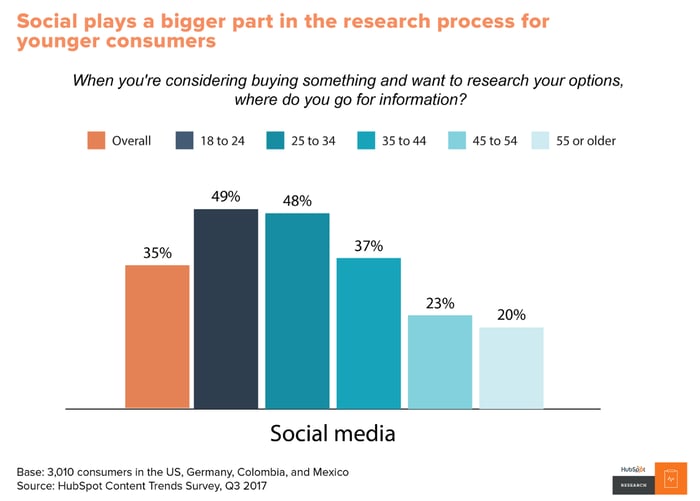
Social media marketing is a marketing strategy employed by manufacturers to foster connections with potential and prospective customers, clients and existing customers, as well as to develop relationships.
When you leverage various social media channels and the social media platforms themselves, manufacturers can engage with their audience and share valuable content that not only showcases their expertise but also highlights their products and services.
Manufacturers should post high-quality, engaging, and instructive content that includes prompts for action on social media. By consistently sharing valuable content, and engaging with their audience, manufacturers can increase brand recognition, generate qualified leads more, and ultimately drive more sales through marketing social media.
Email Marketing
.webp?width=764&height=419&name=Email%20Editor%20(MHS-2).webp)
Email marketing is a form of online marketing that utilizes email and social media to promote products or services, interact with customers, and cultivate brand's recognition.
This entails sending tailored messages and promotional content to current and prospective clients or to potential clients or customers with the objective of augmenting sales and customer loyalty.
The benefits of email can include enhanced customer loyalty and engagement, more precise segmentation, increased leads and revenue, and heightened brand recognition.
By incorporating email and inbound marketing into your overall marketing strategy, you can effectively target prospects and customers, improve email segmentation, increase brand awareness, and ultimately increase leads and revenue for your manufacturing business.
Measuring the Success of Your Marketing Efforts
Assessing the effectiveness of your marketing and sales teams' strategies is essential in order to make informed decisions and develop more successful marketing initiatives in the future.
When monitoring key performance indicators (KPIs) and the inbound marketing call funnel such as website traffic, leads generated, and sales converted, your marketing and sales team can evaluate the success of your inbound marketing campaigns and identify areas for improvement.
Understanding the performance of your marketing allows you to adjust and refine your marketing strategies, based on data, ultimately leading to more efficient and effective marketing campaigns and increased sales for your manufacturing business.
Key Performance Indicators (KPIs)
Key Performance Indicators (KPIs) are measurable metrics of performance over a certain period of time, which are tailored to meet the objectives of the company. They are used to set targets for teams to achieve and may differ based on the industry and the objectives of the organization.
Examples of KPIs include targeted new customers per month, product mix, capacity, velocity, quality, and engagement.
By tracking and monitoring KPIs, manufacturers can gain valuable insights into the effectiveness of their marketing and identify areas for improvement. This information can then be used to inform future marketing strategies, ultimately leading to greater success, and growth for the manufacturing business.
Adjusting Strategies Based on Data
Adjusting strategies based on data can enable organizations to become more agile and efficient, make informed decisions, improve customer experience, attain analytical maturity, and meet regulatory compliance. Data can be employed to detect trends, assess performance, and guide decisions.
It can also be leveraged to devise a new business strategies, refine existing strategies, and pinpoint areas for improvement.
Regular data collection and analysis, using data to inform decisions, and testing strategies prior to implementation are all important practices for adjusting strategies based on data.
By continually analyzing and adjusting your own marketing strategy and efforts based on lead conversion data, funnel velocity data, among other data points, then your marketing team can ensure that your manufacturing business remains competitive and continues to grow.
Overcoming Common Manufacturing Marketing Challenges
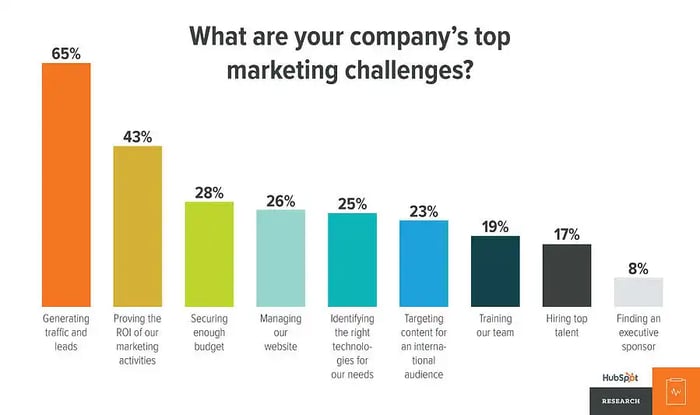
While the manufacturing industry presents its own unique set of marketing challenges, there are strategies and techniques available to help manufacturing companies and marketers overcome these obstacles.
While utilizing targeted marketing-based tactics, try implementing effective lead generation techniques, and producing engaging content, manufacturing companies can successfully navigate these challenges and achieve their marketing goals.
In the following sections, we’ll explore specific tactics and techniques that manufacturing marketers can employ to overcome common, manufacturing marketing challenges and drive more sales and revenue for their business.
Targeted Marketing Tactics
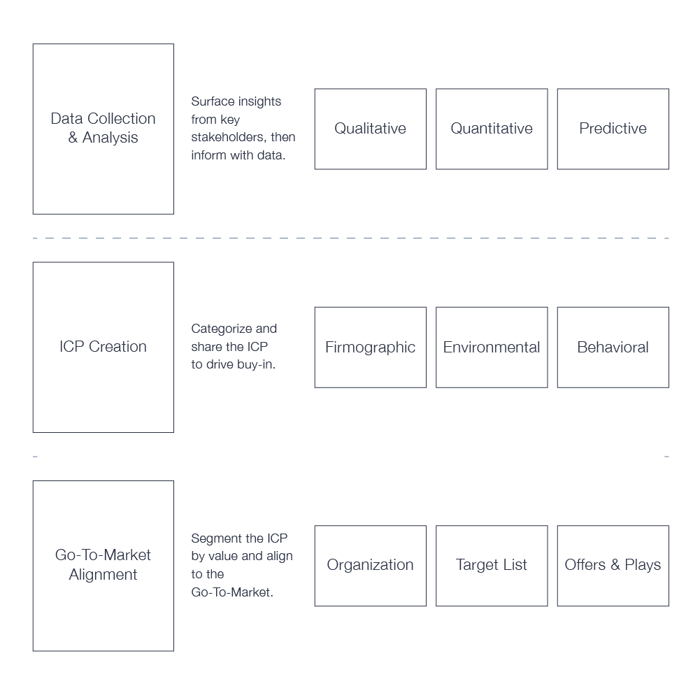
Targeted marketing tactics refer to strategies that leverage data to customize campaigns to distinct segments of the audience, including mass marketing, differentiated marketing, niche manufacturing marketing such as industrial valves or microprocessing chips.
By employing effective tactics, manufacturers can more effectively reach their target audience and generate more leads, ultimately leading to more purchases and increased sales and revenue.
Some challenges associated with marketing associated tactics include understanding customer needs, crafting effective campaigns, and assessing the success of campaigns.
When monitoring relevant KPIs, such as website traffic, conversions, and customer engagement, manufacturers can evaluate the success of their targeted tactics and make data-driven decisions to improve their marketing.
Lead Generation Techniques
Lead generation techniques are vital for manufacturers looking to attract more potential customers and gather their information for future marketing efforts.
These techniques include leveraging existing customers, creating relevant content for every stage of the buyer personas and marketing the sales funnel by itself, offering gated content, optimizing your online marketing content, utilizing video marketing, and personalizing campaigns.
Content marketing, search engine optimization and social media marketing can all be used to generate leads. These strategies are important components of any successful digital marketing program.
When you employ a variety of lead generation techniques, manufacturers can effectively make digital efforts to reach their audience, generate high-quality leads, and ultimately increase sales and revenue for their manufacturing business.
Content Creation Tips
Creating engaging content can be challenging for manufacturers, but there are several tips and techniques available to help. First, understand your audience and their needs by conducting thorough research and competitor analysis.
Next, develop a content strategy that outlines the types of content you’ll create, the frequency of release of your content, and the various social media platforms and channels through which you’ll distribute the content.
Additionally, consider hiring a content marketing agency or freelance writer to help create engaging, high-quality content that resonates with your targeted audience.
When following these content creation and keyword optimization tips, manufacturers can improve their marketing, attract more potential customers, and ultimately drive more sales and revenue from more business.
Manufacturing Company Takeaways of Marketing in 2026
In conclusion, both manufacturing companies and businesses can achieve marketing success by understanding the unique challenges within their industry and employing a combination of marketing strategies, such as content marketing, industrial events, SEO, social media-based marketing, and email marketing.
By setting clear marketing goals, identifying target audiences, and continually measuring and adjusting marketing efforts based on data, manufacturers can optimize their marketing strategies, reach more potential customers, and ultimately increase sales and revenue.
Frequently Asked Questions
What is the manufacturing market strategy?
Manufacturing marketing and purchase journey is the process of creating and executing a plan to promote and sell manufacturing businesses' products to other businesses, such manufacturing companies such as downline supply chain manufacturers, wholesalers, retailers, or business end-users.
The goal of this type of buyer's journey as a marketing strategy and purchasing process for manufacturing companies is to generate sales and build brand awareness over a longer sales cycle.
What are the four 4 types of marketing strategies?
The four Ps of marketing—product, price, place, promotion—are often referred to as the marketing mix. These elements are essential when developing a comprehensive marketing plan and form the basis of the four types of marketing strategies: product, price, place, and promotion.
How do you market a manufacturer?
Content marketing, conferences and industry events,, partnerships and collaborations, social media marketing, SEO, and PPC are all effective strategies for marketing a manufacturing company sell complex products.
What are the 4 major strategies for product advertising?
The four major strategies for product advertising are product, price, place, and promotion - often referred to as the marketing funnel or mix. These are the key considerations to review and implement in the marketing and sales team and marketing funnel in order to successfully market a product or service to ideal customer.
What are the unique challenges in manufacturing marketing?
Manufacturing marketing presents unique challenges, including understanding B2B and B2C supply chain dynamics, targeting a specific audience, generating qualified leads, and creating compelling content.
These challenges require a deep understanding of the industry, the audience, and the best strategies for reaching them. It also requires a creative approach to both content strategy and creation that will capture the attention of potential customers and keep them engaged on your shop floor.


